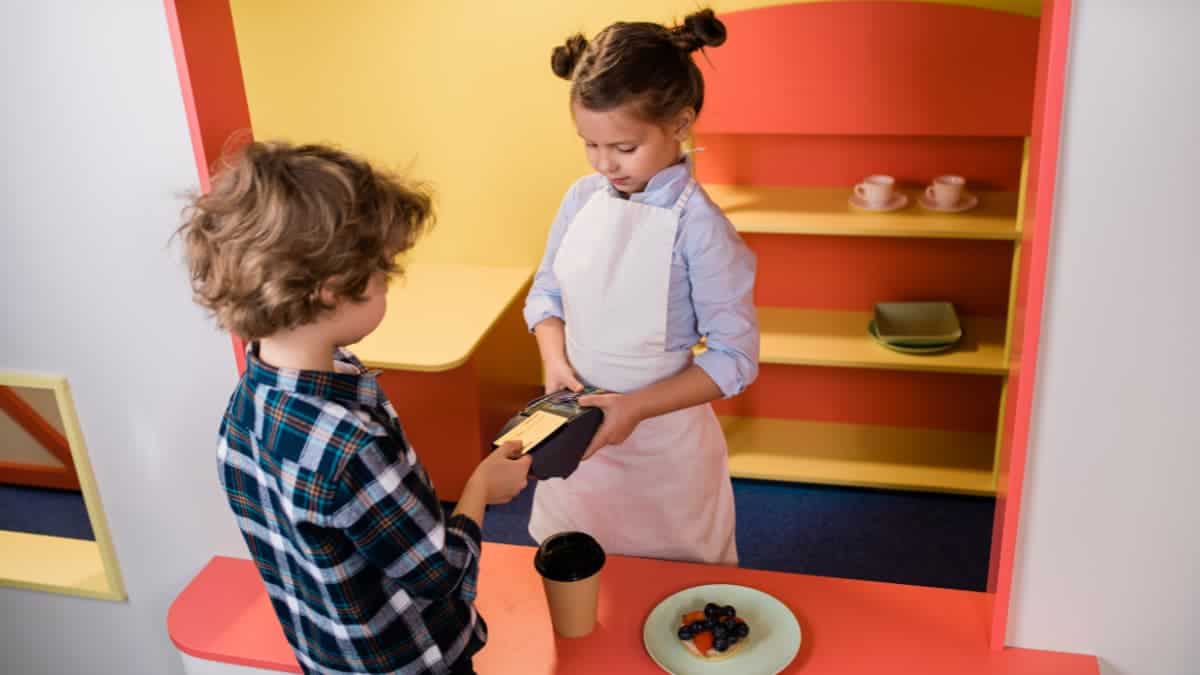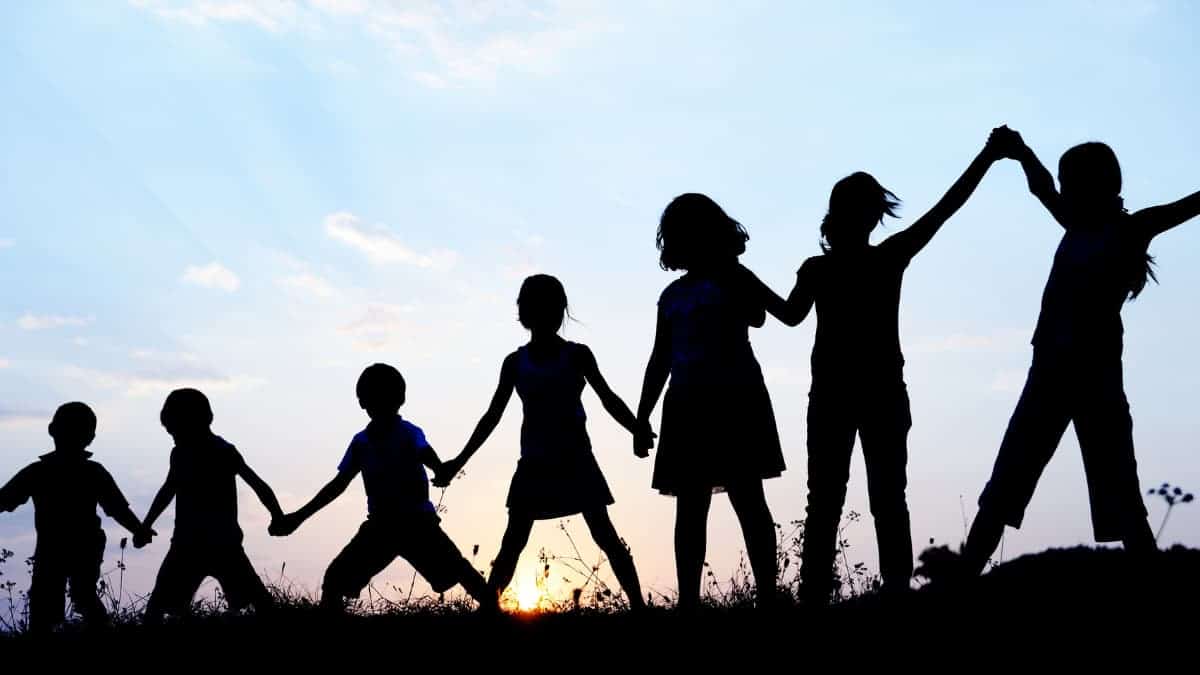Is Coffee Bad for Kids?
When I was a kid, my parents always told me I couldn’t have coffee because it would stunt my growth. That made coffee a forbidden pleasure that I would sneak whenever possible. (If you’re asking yourself how tall I am, I reveal all at the end of the post).
But in my travels around Latin America, I’ve seen that parents give coffee to even very young children. In other countries coffee is literally a banned item for children. So the question comes up, is coffee bad for kids? Let’s take a look at the facts.

Key Takeaways: Can Kids Drink Coffee?
- Coffee contains a strong stimulant, caffeine
- In addition to coffee, children often consume other products that contain caffeine
- Excessive caffeine consumption can have negative, even deadly, effects
- The American Academy of Pediatrics recommends that healthy children under 12 limit or eliminate caffeine consumption
Can Kids Have Coffee?
While there is a minimum age to buy or drink coffee or caffeine products in some countries, there currently aren’t any restrictions in the United States. So whether or not a minor consumes coffee could depend on what country they live in and what their parents think.
Why is coffee consumption a concern? Coffee contains a well-known stimulant, caffeine. Caffeine affects the body in many ways, some positive and some negative. And studies show that the majority of youths consume caffeine in some form every day, mostly in soft drinks.
In fact, caffeine is considered to be a psychostimulant, which means it stimulates the central nervous system. Let’s talk more about how caffeine affects children.

How Does Caffeine Affect Children?
Does caffeine have a negative effect on children? While there are a lot of opinions out there (like my parent’s belief that caffeine would stunt my growth), no one really knows how caffeine affects children as compared to adults.
In general, doctors have found that low doses of caffeine don’t seem to have any significant effect on children, for good or for bad.
But most pediatricians feel that giving caffeine to children is not healthy, which is why it’s hard to do an exhaustive yet ethical study. But some studies have focused on children who are already consuming caffeine on a regular basis. What have they found?
The findings point to the fact that high doses of caffeine have a negative impact on almost all human beings, regardless of age. Caffeine mostly affects the body by increasing blood pressure and lowering heart rates.
Of course, the effects of caffeine don’t stop there. Most of us have felt a bit off if we drink way too much coffee. Some common signs that you drank too much coffee are:
- Jitters
- Nervousness
- Digestive problems
- Insomnia
- Concentration difficulties
- Irregular heartbeat
When caffeine consumption reaches dangerously high levels, you also have to figure in seizures and heart attacks. Serious stuff indeed.
Since overdosing on caffeine has such serious effects, some organizations (such as the American Academy of Pediatrics) give the opinion that any caffeine consumption can negatively affect children under 12 years of age.
And while the recommendation from the American Academy of Pediatrics is that children under 12 avoid caffeine entirely, they do provide guidelines for teenagers.
Even when they reach the ripe old age of 13+, a new teenager may do well to watch how much caffeine he or she consumes. This subject has been in the news for years because of the popularity of energy drinks.
Just how popular are energy drinks like Bang and Red Bull? Up to 50% of teenagers in the US consume them.
Youths up to 18 years of age are encouraged to avoid caffeine, too. But if they decide to consume caffeine, they should limit it to about a quarter of what is considered healthy in adults. So for teenagers that would be a total of 100 mg of caffeine a day.

What age should you drink coffee?
Some researchers consider that children shouldn’t consume coffee since it contains caffeine. But about half of all youths consume caffeine in hot chocolate, chocolate candies, energy drinks, and soft drinks. Why should the caffeine in coffee be considered a threat? That point isn’t clear.
A youth that consumes products with caffeine should keep in mind that caffeine is in many things we consume, and not just coffee or energy drinks. That can make a big impact on the total amount of caffeine that is consumed in a day.
When you think about the overall caffeine you consume each day, you need to think beyond products that naturally contain caffeine like tea, coffee, or cacao.
You might find caffeine in just about anything. So don’t be surprised to find caffeine in snack bars and lip balm. You might even find caffeine in some flavors of gummy bears!
And of course, the main concern is in energy drinks, some of which have up to 400 mg of caffeine in one can. Many of the caffeine overdoses that make headlines happen in youths under 19, and many of them are connected with energy drinks.
Also, think about why a child would want caffeine. Do they feel the need to keep awake? Perhaps analyzing their lifestyle and cutting back on activities will give them more energy and would be healthier than consuming caffeine. Of course, that advice works for anyone at any age.
Wrapping Up: Children and Coffee
Is coffee harmful for children? From a personal viewpoint, I can say that my parents were wrong, and that the little sips of coffee I snuck didn’t stunt my growth – unless I was actually meant to be 2 meters tall!
But when talking about what doctors have found, and what they recommend, we can come to some conclusions. Caffeine does affect everyone, both children and adults.
And since children can find it hard to keep a balance when consuming caffeine products, doctors recommend limiting or eliminating all caffeine products for youths under age 18. If a young person decides to consume those products, they should limit them to about a total of 100 mg daily.

